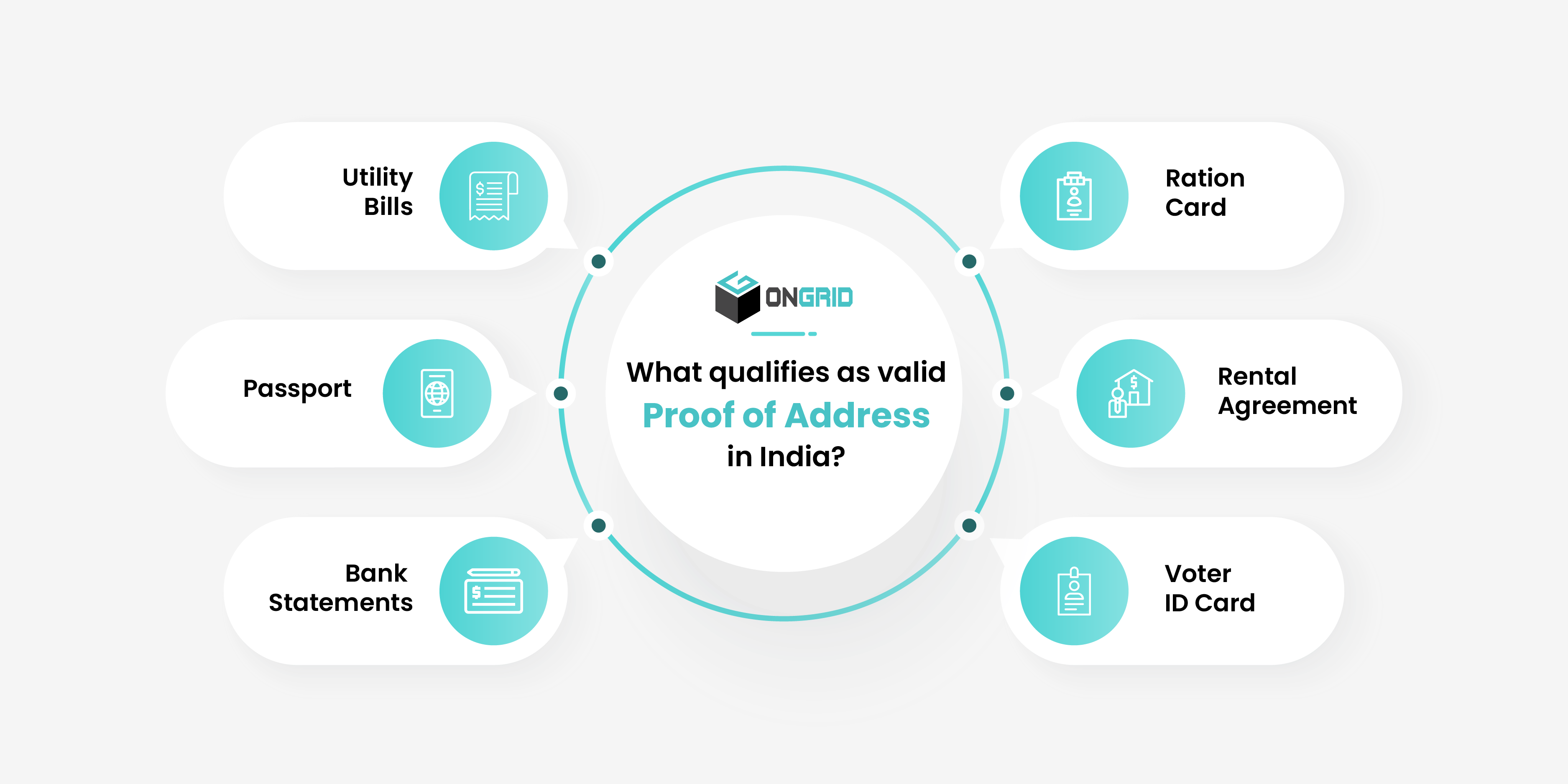Table of Contents
ToggleProof of Address
The digital age has revolutionized the way we conduct business and access services. With a growing number of online transactions and interactions, verifying the identities of individuals and businesses online has become more critical than ever. This is where Know Your Customer (KYC) and Know Your Business (KYB) processes come into play.
These crucial procedures help establish trust and mitigate risks in online transactions by verifying customer and business identities. At the heart of both KYC and KYB lies a vital element: Proof of Address (POA). This document serves as concrete evidence that a person or company resides or operates at a specific location.
What is Proof of Address?
A Proof of Address is a document issued by a reliable third party that verifies a person’s or company’s residential or business address. These documents come in various forms and are essential for establishing residency and facilitating communication. In the context of KYC and KYB, Proof of Address plays a critical role in ensuring the legitimacy of the information provided and preventing fraudulent activities.
Key Criteria for Valid POA
A valid Proof of Address document should meet certain essential criteria:
Issued by a Reliable Source: The document should be issued by a reputable entity like a government agency, utility company, bank, or financial institution. Examples include electricity bills issued by a power distribution company or a bank statement from a recognized bank.
Current and Valid: The document should be recent (typically within the last 3-6 months) to ensure the address information is accurate and reflects the current residence or place of business.
Contains the Full Address: The document should clearly display the full residential or business address, including the name, house number, street name, city, state, and postal code. Missing information can lead to delays or rejection during verification processes.
What qualifies as valid Proof of Address in India?
The specific documents accepted as valid POA can vary depending on the organization conducting the verification and the type of verification (KYC or KYB). However, some commonly accepted documents in India include:

Utility Bills: Electricity, water, telephone, or gas bills issued by a government agency or a recognized service provider can be used as Proof of Address.
Passport: A valid Indian passport serves as both a form of identity verification and Proof of Address.
Bank Statements: Recent bank statements from a recognized bank can be used as address proof, provided they include the full address information.
Ration Card: A government-issued ration card is a widely accepted Proof of Address document, especially for individuals residing in rural areas.
Rental Agreement: A registered rental agreement can be used as address proof for tenants.
Voter ID Card: A valid Voter ID card issued by the Election Commission of India serves as both identity proof and POA.
Why is Address Proof Important for verification purposes?
Verifying a person’s or company’s address through Proof of Address offers several crucial benefits:
Prevents Fraud: By verifying the address, KYC and KYB processes help mitigate the risk of identity theft and fraudulent activities. Having a confirmed address allows organizations to identify potential inconsistencies and red flags that might indicate fraudulent intent.
Check Also: Address verification API
Ensures Compliance: KYC and KYB regulations are often mandated by law, and many financial institutions and service providers are required to comply with anti-money laundering (AML) and other regulations. Verifying Proof of Address is a key component of adhering to these regulations.
Facilitates Communication: Having a verified address allows for secure communication and delivery of important documents or services. This could include sending account statements, correspondence related to the verification process, or even physical goods purchased online.
Difference between the POA requirements for KYC and KYB processes
While both KYC and KYB require address verification, there might be some slight variations in the types of documents accepted.
KYC (Individual Verification): Documents like utility bills, bank statements, and rental agreements are commonly accepted for verifying individual addresses.
KYB (Business Verification): Documents like business registration certificates, property tax receipts, and utility bills for the business address might be required for verifying company addresses. Additionally, some organizations might request documents demonstrating ownership or lease agreements for the business premises.
Proof of Address is essential in establishing trust and preventing fraud in KYC and KYB processes. By verifying an individual’s or company’s address, organizations can ensure they are engaging with legitimate entities and mitigate potential risks.
Understanding the various acceptable documents and the nuances between KYC and KYB requirements is crucial for both individuals and businesses in the digital landscape. Providing accurate and complete Proof of Address documentation facilitates a smooth verification process for individuals, while businesses can effectively mitigate associated risks.
OnGrid’s verification solutions ensure the authenticity of Proof of Address documents by detecting any tampering. In cases of suspected fraud, OnGrid’s PAN India address verifier coverage allows for comprehensive verification of the physical address provided by individuals or business entities, ensuring accuracy and legitimacy which can facilitate business partnerships.





Leave a Reply